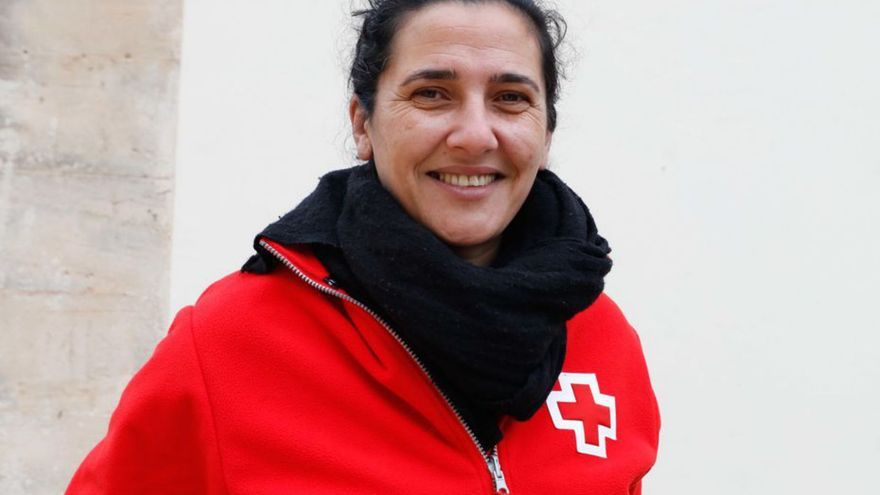The ten Ukrainian refugees who settled a few days ago in the Sa Casilla shelter are gradually getting accustomed to the island with the help of Red Cross volunteers. They have become their shadow and accompany them in every step they take. They are the ones who have helped them with all the necessary formalities to start a new life away from their country and, so far, the Ministry of the Interior has processed and resolved 211 applications for temporary protection in Ibiza. Red Cross has provided advice and assistance to one hundred of them.
The Ukrainian refugees arrive alone, scared and not knowing what to do. Not only do they need the document that proves their temporary residence in Spain, but also health and bus cards, among others. At the moment, they hardly leave the shelter, but as the coordinator of the organization in the Pitiusas, Mari Castaño, explains, “they will begin to do so because here they are a little isolated”. Nearby they have a bus stop to go to both Vila and Sant Josep, and the first trip they make will be accompanied by a volunteer. Now, when they want to move, they do it in the Red Cross vans.
Of the 11 people who are now in the space provided by the Sant Josep City Council, six are minors; a woman with two children has arrived in the last few hours. It is the town council itself that is arranging for the youngest children to have access to the nursery, while the teenagers continue their studies online. “The hostel has wifi and we have provided them with digital devices,” says Castaño.
The work of the volunteers
Every day, several volunteers come to the shelter. In fact, since refugees started arriving on the island, the Red Cross has added 15 new volunteers, many of them Ukrainian-speaking. “There are two colleagues from the employment sector who, together with the translators, are interested in learning about their experience and training to find out what possibilities they have of joining the labor market,” explains the coordinator. There are already refugees who have found work as electricians or butchers, among others, and “there are several companies that are offering vacancies”. “These jobs are easier because they do not have to talk to customers, which is the hardest thing for them because they don’t speak the language. There is an offer for cleaning staff, for example, and we are teaching them the key vocabulary”, he explains.
As language is the first obstacle they are encountering, the Red Cross is organizing Spanish and English classes. “We are filling the walls of the shelter with post-it notes so that they become familiar with certain phrases and words,” explains the coordinator. Castaño says that now they can offer this resource because there are not a lot of families, unlike the situation in Mallorca, where she says that they are “overwhelmed”, with more than 300 Ukrainians in a hotel.
The coordinator of the entity insists that it is essential that they work on “autonomy and self-esteem” and are able to spend most of their time doing something that makes them feel productive. “They have relatives there who have been left in a serious conflict situation and having their minds occupied is essential,” she reiterates.
Support for Ukrainian Refugees
The capacity of the shelter is for 14 people, so there are only three places left at the moment. In addition, Red Cross is in contact with the Consell de Ibiza to set up the municipal shelter in Vila, with the aim that these people live in a more central location. Even so, the institution explains that it has not yet been decided when the transfer will be made because, for the moment, “there is no urgency”.
Castaño recalls that a mother with her two children decided last week to leave the reception program and return to Ukraine, a situation that several of the Ukrainian refugees are considering. For the time being, the organization continues to offer support to those who need it, since, in addition to the reception service, “we continue to offer resources to those who are staying in the homes of family and friends”. They are provided with food and basic necessities, as well as facilities to study Spanish.
For the full article, please visit Diario de Ibiza website here.

